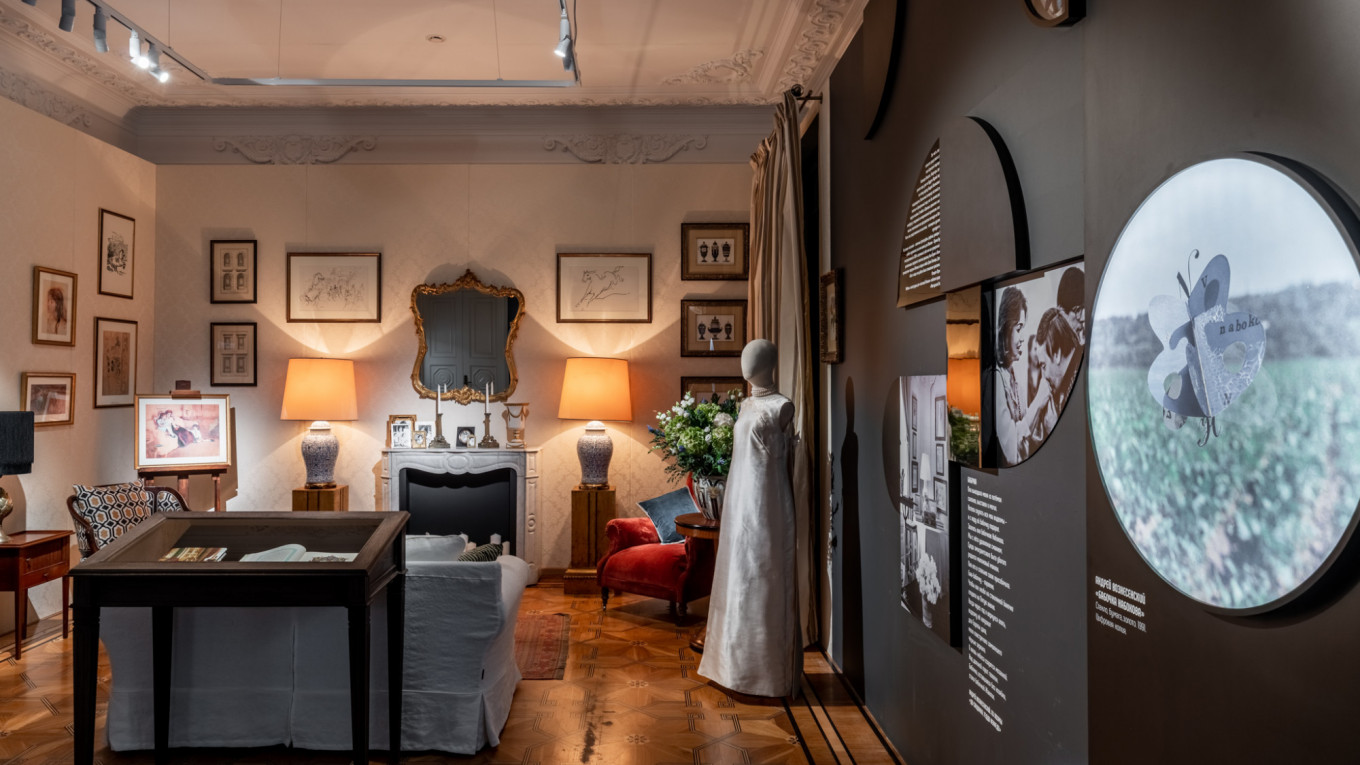“The Poet and the Lady” is an exhibition devoted to the unlikely friendship between the Russian poet Andrei Voznesensky and American First Lady Jacqueline Kennedy.
The exhibition is at the Voznesensky Center, a relatively new addition to the Moscow museum scene, which has the mission of not just telling the story of Andrei Voznesensky, but the entire “Thaw” era in the 1960s. The Voznesensky Center also promotes contemporary culture and art and highlights its connection to Voznesensky’s generation.
“The Poet and the Lady” is displayed in several halls, each devoted to certain aspects of the Voznesensky-Kennedy relationship. The first hall, called “Life Lines,” is straightforward: it tells the biographies of the two protagonists. You can pinpoint exactly where these the timelines overlap: Voznesensky’s performance at a U.N. conference hall in New York in 1967 that Jacqueline Kennedy attended. They met there and then stayed in touch for the rest of their lives.
You can also listen to the audio recordings of Voznesenky reading his own poems in Russian and his translator, William Jay Smith, reading them in English. Voznesensky’s wife, Zoya Boguslavskaya, was acquainted with Kennedy, too, and at the end of the first hall you can see a video of her recalling visits by Kennedy and other American friends to Russia and their dacha in Peredelkino.
Jacqueline Kennedy’s work as a publisher are presented in the second hall. Among the books she helped publish were documentary books by Russian historian Edvard Radzinsky and “The Cairo Trilogy” by Nobel prize winner, Naguib Mahfouz.
At the center of the second room is a photograph of one of Voznesensky’s famous artworks that he called “videoms” — “Butterfly,” devoted to Vladimir Nabokov. In 1991 Voznesensky gave it to Kennedy as a gift after his exhibition at a New York gallery and then borrowed it for another exhibition. By the time the show was over and he wanted to give it back, Kennedy had died. After that, “Butterfly” disappeared.
In another hall there is a partial recreation of Jacqueline Kennedy’s apartment in New York overlooking Central Park, where Voznesensky's "Butterfly" sat on a windowsill. Voznesensky visited her there on several occasions. The next hall is a multimedia installation about the fashion styles of the 1960s in the U.S. and how they influenced Voznesensky, himself a style icon of the “Thaw.” On the second floor you can watch a feature length documentary by the exhibition’s curator Sergei Nikolayevich about Jacqueline Kennedy.
The exhibition runs at the Voznesensky Center till March 29.
46 Ulitsa Bolshaya Ordynka, Bldg. 3. Metro Dobryninskaya. For more information, see the site.
A Message from The Moscow Times:
Dear readers,
We are facing unprecedented challenges. Russia's Prosecutor General's Office has designated The Moscow Times as an "undesirable" organization, criminalizing our work and putting our staff at risk of prosecution. This follows our earlier unjust labeling as a "foreign agent."
These actions are direct attempts to silence independent journalism in Russia. The authorities claim our work "discredits the decisions of the Russian leadership." We see things differently: we strive to provide accurate, unbiased reporting on Russia.
We, the journalists of The Moscow Times, refuse to be silenced. But to continue our work, we need your help.
Your support, no matter how small, makes a world of difference. If you can, please support us monthly starting from just $2. It's quick to set up, and every contribution makes a significant impact.
By supporting The Moscow Times, you're defending open, independent journalism in the face of repression. Thank you for standing with us.
Remind me later.






